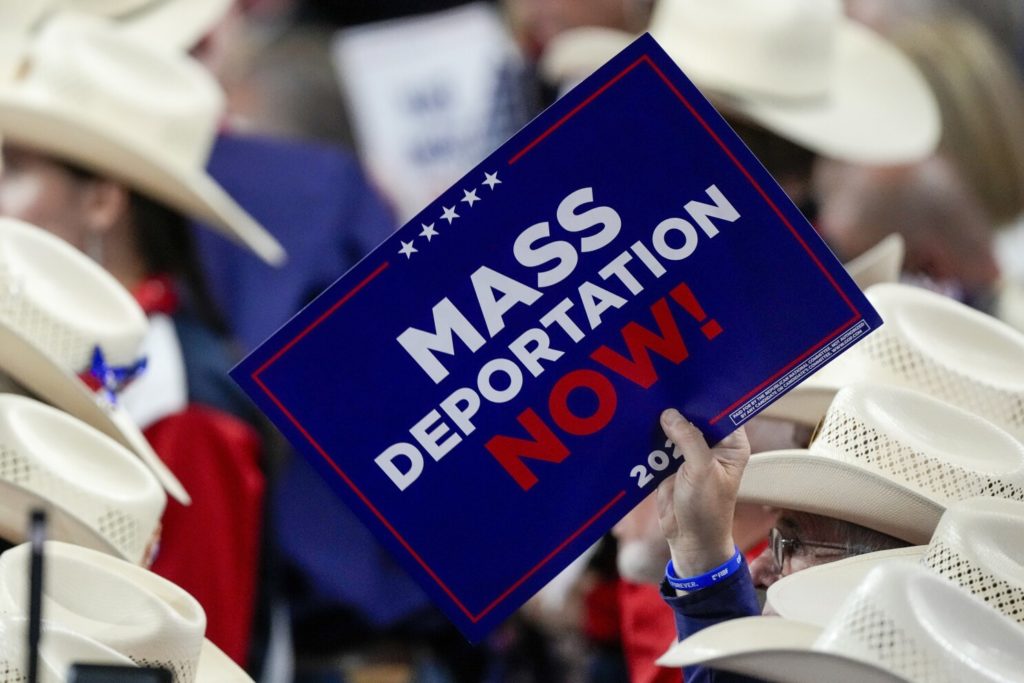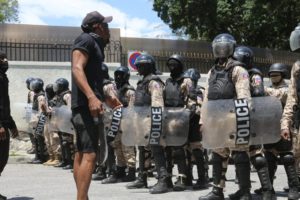In an exclusive report by NBC News, sources have revealed a controversial plan under consideration by the Trump administration that could have far-reaching implications for thousands of migrants. The proposed plan identifies several countries, including Turks and Caicos, the Bahamas, Panama, and Grenada, as potential destinations for deported individuals whose home countries refuse to accept them.
The move, if enacted, could leave tens of thousands—potentially even hundreds of thousands—of migrants in limbo. Many would find themselves permanently displaced in nations where they lack connections, cultural ties, or even knowledge of the local language.
A Plan Sparking Global Concern
Critics argue that the plan could exacerbate humanitarian crises in the designated countries, which are ill-equipped to absorb such an influx of displaced individuals. Nations like Turks and Caicos and Grenada, with relatively small populations and limited resources, could face overwhelming pressure on their infrastructure, healthcare, and social services.
Additionally, the plan raises questions about international law and migrants’ rights. Advocates have pointed out that forcing individuals into countries where they have no legal status or historical ties could violate basic principles of human rights and dignity.
Broader Implications for Migration Policy
The Trump administration’s plan underscores its hardline stance on immigration, particularly its efforts to bypass challenges posed by countries refusing to accept deportees. In recent years, deportations have faced obstacles when nations such as Haiti or Venezuela delayed or denied entry to their citizens due to political or logistical reasons.
The proposed solution, however, has raised alarms among immigration experts and human rights organizations. They warn of the potential for displacement on an unprecedented scale, with migrants effectively being left stateless.
Voices from the Region
Regional leaders and organizations have expressed concern over the lack of consultation in this proposal. Officials in the Caribbean and Central America fear that the deportations could strain their fragile economies and create social unrest.
“This plan risks turning our nations into dumping grounds for those rejected elsewhere,” one Caribbean official stated, calling for urgent dialogue with U.S. authorities.
What’s Next?
As details of the plan emerge, the international community is keeping a close watch on its development. Activists are urging the U.S. to reconsider, emphasizing the importance of humane and collaborative approaches to migration issues.
The proposal underscores the complexity of global migration challenges and highlights the urgent need for equitable solutions that respect the rights and dignity of all individuals.
Stay tuned as we continue to monitor and report on this developing story.






























![Bring the Caribbean to your kitchen.
Discover bold, time‑saving flavor with Épis of Haiti spice blends—perfect for authentic island dishes or a vibrant twist on your favorites. Taste tradition, transform your cooking. [ @episofhaiti ]
Explore the full collection at episofhaiti.com
#AD #lunionsuite #haitianamerican #episofhaiti](https://scontent-lga3-2.cdninstagram.com/v/t51.75761-15/491432320_18506758480023307_6411904492707133407_n.jpg?stp=dst-jpg_e35_tt6&_nc_cat=109&ccb=1-7&_nc_sid=18de74&_nc_ohc=mg9gOnjwWSMQ7kNvwHmwuoi&_nc_oc=AdnLNy2-7vf5do1dbVcTviEujqlBywo5qZEsDvrjqIUKPK8B30RjrhBkQIPsoMb2IJc&_nc_zt=23&_nc_ht=scontent-lga3-2.cdninstagram.com&edm=AM6HXa8EAAAA&_nc_gid=f7-FJBfTicFMgvzbOvz5Qg&oh=00_AfGk47_m1myFzsOzmv_Hlof5rA4eOEW5YFp9FrTQLd4rTg&oe=6811FC11)
